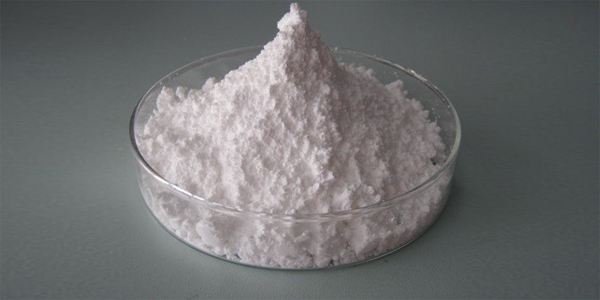Creatine

Well-known in sports and bodybuilding creatine is an amino acid /2-(methylguadinino)ethanoic acid, C4H9N3O2/ and is normally found in meat and fish, and also in the human body in the kidneys and liver .
It is mainly stored in the muscles, but 1.5-2% of it is converted into creatinine daily.
After research found that carbohydrates increased the absorption of the muscle form of the amino acid, the market for sports drinks containing it grew.
The oral use of 2-(methylguadinino)ethanoic acid increases its amount in the muscles, which contributes to the regeneration of adenosine triphosphate /ATP/.
Creatine became popular in the 1990s as a means of improving athletic performance and building lean muscle mass. It is also used in the treatment of chronic heart failure and in mitochondrial diseases.
Subsequently, the amino acid was found to be of limited benefit when performing very high-intensity exercise lasting less than 30 minutes.
It also does not contribute to an increase in endurance during less demanding but long training sessions.
Caffeine may limit the effect of 2-(methylguadinino)ethanoic acid with respect to intermittent exercise.
In addition, the amino acid in combination with caffeine and ephedrine can cause the appearance of side effects. However, more research is needed to confirm these interactions.
From several studies, the results of which have been officially confirmed, an increase in muscle mass has been found when using creatine in the form of a dietary supplement.
However, conflicting results are reported from other studies conducted.
However, the available evidence can be concluded with a high degree of certainty that C4H9N3O2 leads to an increase in lean muscle mass, strength and overall body endurance.
Research supports the use of 2-(methylguadinino)ethanoic acid in people with congestive heart failure.
Several studies have reported an increase in improving the efficiency and endurance of the heart muscle.
Some studies have established the benefits of using C4H9N3O2 as an adjunct to the cardioplegic solution of people undergoing coronary artery bypass surgery.
The benefits of this use are to reduce episodes of abnormal or irregular heart rhythms and to limit the need for defibrillation.
But further research is needed to definitively confirm this.
Despite the lack of clearer evidence, some research suggests that continued use of an amino acid from the early stages of diagnosis lack of an enzyme that produces 2-(methylguadinino)ethanoic acid may to favor the improvement of neurological abilities.
But before correct conclusions can be drawn, stronger evidence is needed.
Recent studies on the effects of creatine on children with a breathing disorder called apnea of prematurity have reported very conflicting results.
Better-designed studies are needed to better examine this relationship.
Dose
To limit the effects of aging 0.3 grams per kilogram of body weight, 2-(methylguadinino)ethanoic acid, orally, daily, for 5 days, followed by 0.07 g/kg, also orally , for a period of up to 79 days.
In amyotrophic lateral sclerosis /ALS/, 3-30 grams of the amino acid orally daily for 7 days up to 56 weeks, in 1 or 2 separate doses.
To increase bone density 0.3 g/kg body weight, orally for 5 days, then 0.07 g/kg, daily, orally for 79 days.
p>
For chronic obstructive pulmonary disease 17.1-22 years daily, for 5 days to 2 weeks. Then 3.76-5.7 g daily for 7 to 12 weeks.



